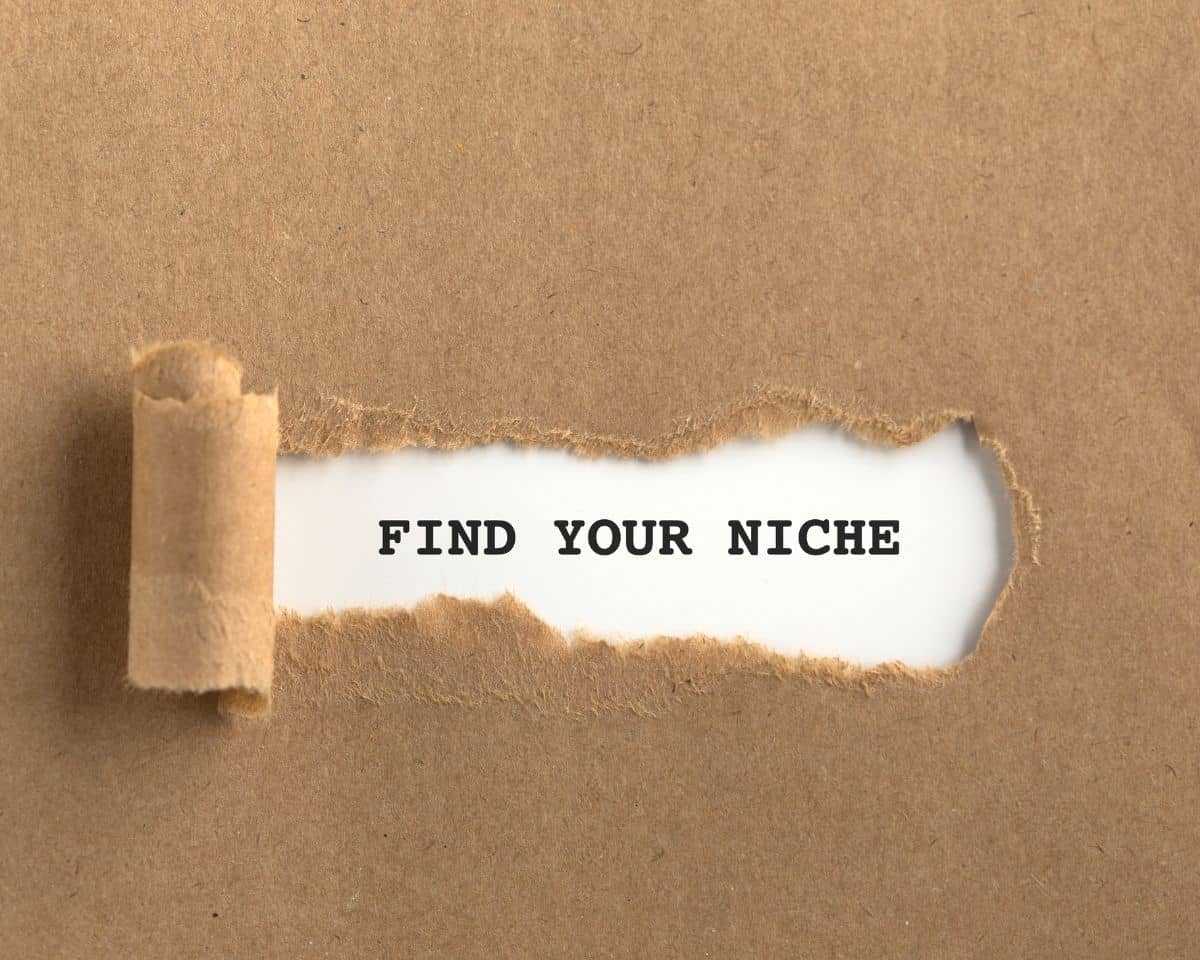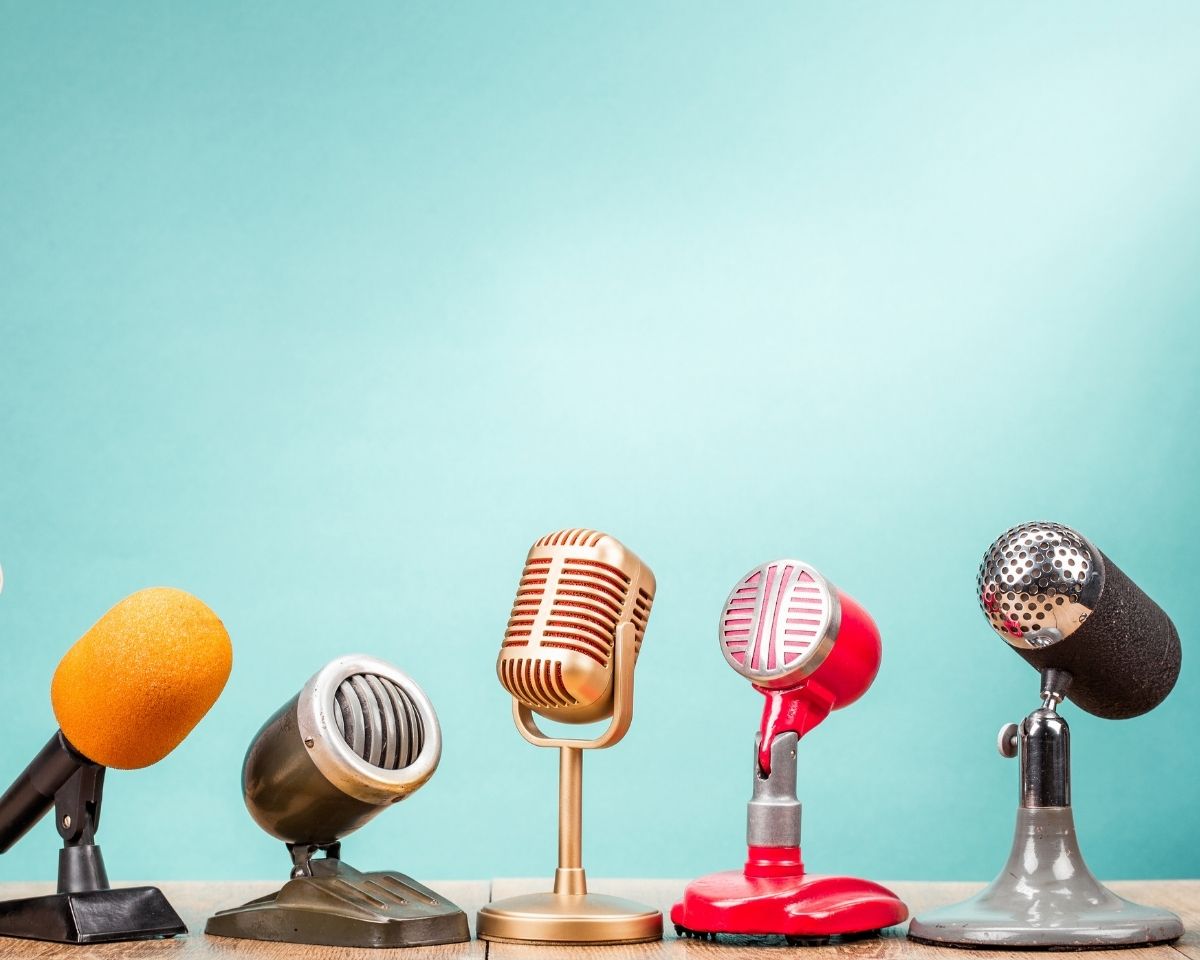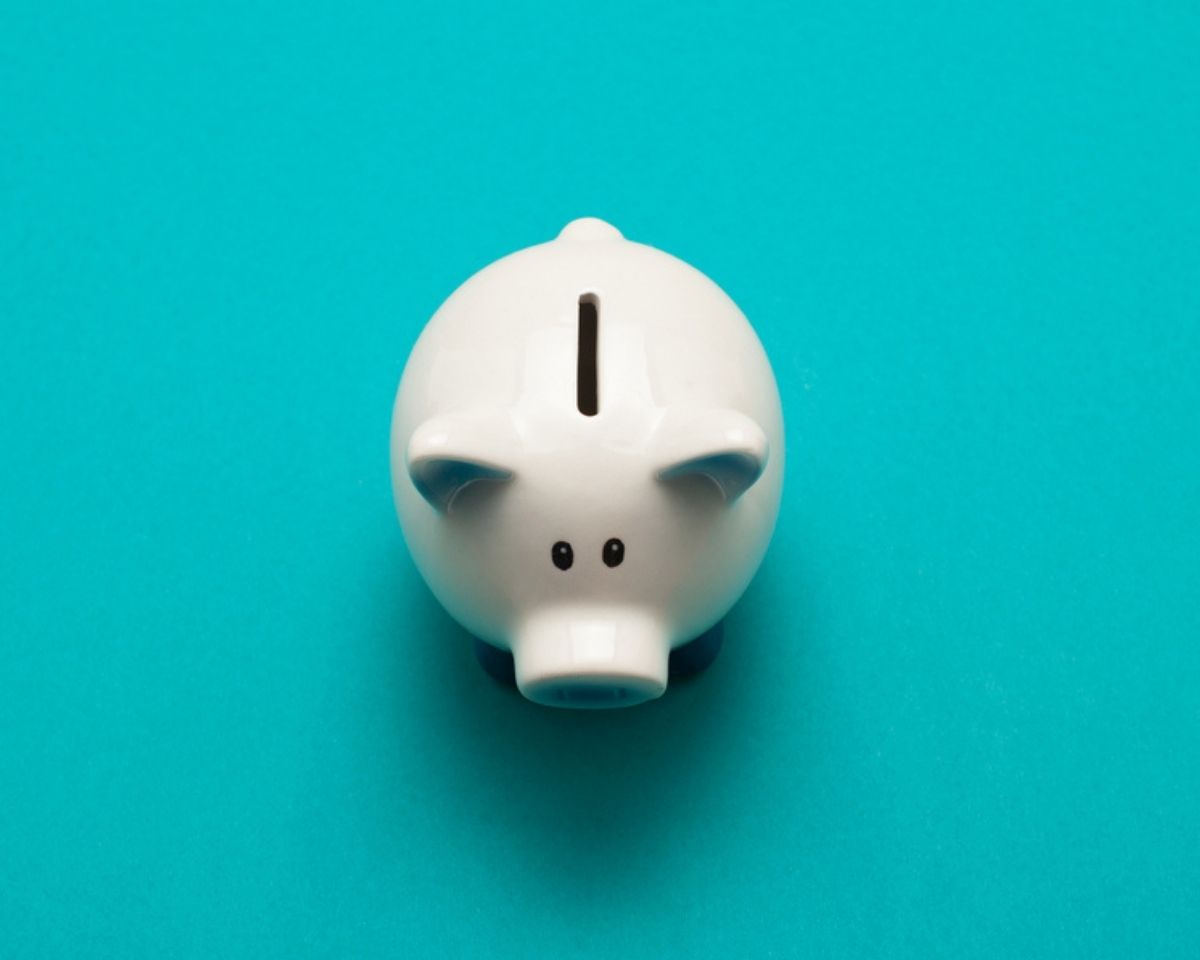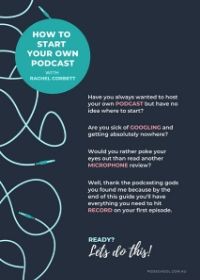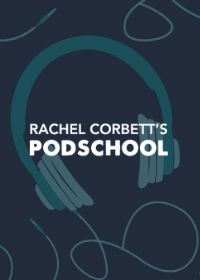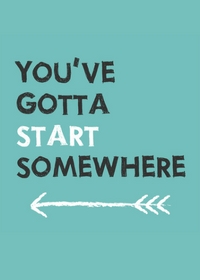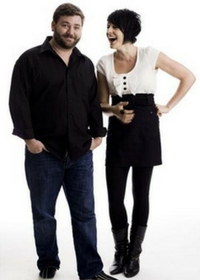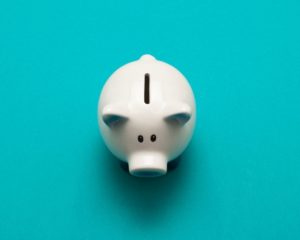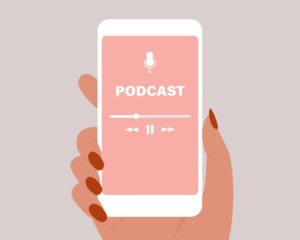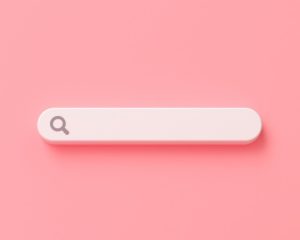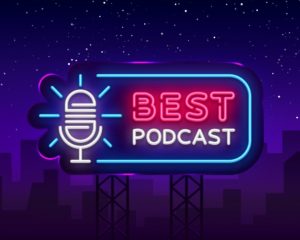
To podcast or not to podcast?
Podcasting is a great way to get your message out into the world but it’s also hard work. For every show that’s listened to by millions of people, there are thousands that have an audience consisting of the host and their mum.
So, should you start a podcast or is it better to stick to being a fan?
Well, before you buy the latest gear, don the headphones and start sprinting towards your dreams of podcasting glory, ask yourself these questions…
Who are you doing this for?
If you want your podcast to be a success it’s essential that your idea is built with an audience in mind, rather than your ego.
If you’re only doing it because you want to say “I have a podcast” or because you think you’re entertaining and people need to hear that, you’re going to find it difficult to grow an audience.
Why? Because audiences gravitate toward content that provides value for them.
That value could be entertainment, education, escapism or just the fact that they find you really engaging.
If you’ve started a podcast because you want to get your voice out there and that’s it, the only person who’s getting any value out of that is you.
Sure your parents might listen because value for them could be supporting you, but you’re not going to grow your audience outside of the people who know you.
Sitting down before you start your show to design your ideal listener will help you make content decisions so you’ve always got them, not you and your ego, in mind.
Do you know your niche?
Trying to create a podcast that appeals to everyone usually ends up appealing to no one.
There are a bajillion podcasts out there and unless you’re an established brand people are already searching for, the only way to stand out from the crowd is if you’re doing something different.
You might be concerned that narrowing your focus will make it harder to come up with ideas but anyone who’s worked creatively will know, the most crippling thing anyone can say is ‘do whatever you want.’
Creativity needs parameters to get the juices flowing, so if you know exactly what your topic area is or what specific problem you’re solving and why you’re doing it, coming up with content will be much easier.
It also makes it easier to sell your concept to new listeners.
If you can explain the idea in one sentence that’s going to be much more compelling than saying “It’s a show where I talk about stuff I find interesting.”
That’s great if people already find you interesting but if this is the first encounter they have with your show it’ll sound like your podcast is more about you than it is about the audience.
Do you have time to do it?
Podcasting is a huge commitment and the only way to gain traction is if you’re releasing episodes consistently.
The most common and usually most effective frequency is weekly, although the more episodes you have, the more opportunities there will be for people to download your show.
Consistency is key so before you launch it’s important to look ahead at your calendar and think ‘Can I realistically upload an episode every week for the next year?’
If you can’t it might not be the right time to get started because if you promise your listeners there’ll be a new episode every week, it has to be there.
One way to combat the stress of recording an episode every week is to batch record episodes so you can get ahead of yourself.
If your content is based on current events this will be difficult, but if you can plan and record your shows in advance, this will give you a buffer of episodes to release that will save you a lot of stress.
Are you just doing this to make money?
There are a lot of people out there making money from podcasting BUT that hasn’t happened overnight and they’re also the exception rather than the rule.
Ads aren’t the only way to monetise your show but if you are going to put ads in your content you need at least 10,000 downloads per episode to make it worthwhile.
If you’ve started your podcast already you’ll know, that is not an easy number to get to.
Shows that are monetising their content have either established a significant following prior to starting their podcast or they’ve grown an audience by consistently uploading content that appeals to their ideal listeners.
And this doesn’t happen overnight.
Having the goal of generating revenue isn’t an impossible dream but you have to have a loyal audience first and you have no idea how long that will take to build.
It’s best to start from a place where you’re dying to put your content out into the world regardless of whether you’re getting paid for it and see where it goes from there.
That way any money you do make will be a bonus rather than something you’re counting on.
Why do you really want to start a podcast?
If you’re doing it because you’ve got content you’re confident an audience will find valuable and you’re committed to putting in the time and effort to build your show, there’s a good chance your podcast will be a success (although not overnight).
If you’re doing it because you think podcasting is something you have to do because everyone else is doing it then don’t go buying that mic just yet.
There are millions of podcasts out there and the vast majority of these are no longer in production.
Sometimes that’s because they were only supposed to last for a season but the majority of the time it’s because the makers of these shows didn’t realise it’s not as simple as sitting in front of a microphone for five minutes and then watching the fans flood in.
To be successful you have to create quality content (which requires real effort), consistently (which takes a lot of time) and share it far and wide so people actually listen (which is harder than you might think).
All of this means you have to be podcasting for the right reasons or your show will fade out like so many others.
Got a burning podcasting question you’d like answered? Send me an email.
Want to start your own podcast but need a little help? Download my “How To Start A Podcast” guide or sign up for my online podcasting course, PodSchool.
Hello and welcome to the show. If you are thinking about starting a podcast, but you haven't jumped in the deep end yet, I wanted to give you a few questions to ask before you get started to make sure you give yourself the greatest chance of success. One of the great things about podcasting is that it's given the means and the technology and the platform to millions of people so you no longer have to knock on the door of a radio station and say, "Excuse me. Here's a demo tape. Would you please let me get in front of a microphone?" Now, if you've got content and a great idea, you can create the show yourself and get it out in front of a really big audience. If you're doing it right. But that's not guaranteed.
Podcasting is one of those things where a lot of people are getting very interested in it. But without any real sense of the time and the effort, it takes and the fact that success is very hard to come by. You need to be consistently delivering a high-quality product. Particularly now when there are so many podcasts out there that are really high quality. When you've got an incredible playing field of amazing shows you really need to step up and deliver if you're going to compete and thrive in that space. Just because it's little old you in your lounge room doesn't mean you can't be an incredible success. But you have to know what you're getting into so that you can make sure the show that you have is all that you want it to be rather than something that you do for a few months and think, "Oh, god, this isn't great. Nobody's listening!" And then let it die, like so many podcasts before have.
So some of the questions that you should ask yourself before you get started. The first is who am I doing this for? This is just a great exercise generally when you're coming up with podcast content because designing an ideal listener, somebody you are actually doing the show for, will help you make decisions about your show before you actually have an audience. So, for example, if your ideal listener is Jan. She's 38. She's got three kids. She's a busy mom. She's got a job that she is trying to juggle with her kids and she doesn't have a lot of time on her hands. That picture can inform some of the decisions that you make about the style and the structure of your show. So I'm sure Jan is going to appreciate a really kickass 10-minute show as opposed to a long meandering 45-minute episode that she just doesn't have time to listen to. The other thing your ideal listener profile can impact is how you present your show. So, you might lay off the f-bombs if because you know Jan's in the car with the kids and she probably doesn't want to explain what the f-bomb is. So when you haven't got a show yet and you haven't got an audience yet, so you can't send them an e-mail or ask them to send in their thoughts. Designing your ideal listener helps you to be a bit more strategic about your content decisions before you've started your show. The other thing it helps you work out is whether you actually have an audience in mind or whether you're just wanting to start a podcast because you want to be on a podcast. Now, if that's actually the reason, it's going to be hard to make that show a success because to grow an audience your content needs to be helping people. Whether that's entertaining them or educating them, it needs to serve a purpose for the person that's consuming it. If the purpose is just I just want to say I'm a podcast it's gonna be really hard to find listeners. And more importantly, keep those listeners, because as soon as somebody listens to content and they think, 'this is more about this person's audio showreel than it is about content that I want to consume,' you're going to turn people off. So be honest with yourself about who you're doing it for. And if it's somebody specific, really sit down and write out who that person is so that it can help you make content decisions about your show.
The second question you should ask yourself is do I have a niche for my show? Now I'm sure if you've been looking around and researching podcasting, you'll have heard about this idea of a podcast niche. You might think to yourself, 'Well, hang on a second, wouldn't I be shutting out people if I was trying to appeal to less of them? Don't I want to appeal to everyone?' But the problem with trying to appeal to everyone is you become almost impossible to define. If you're someone that already has an existing profile and people are going to be searching for you and what you do anyway, that's a different story. You are able to create more of a general show because the niche is actually you and people who are interested in what you do. But if you are an unknown and you are starting up your podcast from scratch, it's unlikely people are going to be searching for you. So you want to be able to find a topic area that people will be looking for. Another good thing about having a niche is that it actually helps you come up with ideas. The enemy of the creative person is somebody saying, "Just do whatever you want." Creativity needs some parameters. It makes it a lot easier when you have a defined box in which your stuff sits to think about ideas within that box. If you're just coming up with ideas about anything and everything, it can be really hard to work out what you actually want to make a show about. So having those kinds of limits can improve your content and you want something that you can easily define when you're talking to people. If your idea can be sold to somebody in one sentence, it's going to be much easier to get them to listen than if you just say, "Oh, my podcast is a show about things where I talk about stuff I'm interested in." Don't know that's going to be appealing to too many people unless they really like you personally. Then they might listen. But most of the people that are going to listen to your show as you grow it aren't going to know you. So you really want to come up with an idea that's easily definable.
The third question to ask yourself is do I have time? I wish podcasting was as easy as just sitting down in front of a microphone, saying a few words and watching the listeners flooding. Unfortunately, it takes a bucket load of time to get a show up and running, not to mention the time it takes to share that show. You have to be delivering content consistently to build an audience, which means you can't drop an episode now and then think I'll do another one in a few weeks or a few months time. You've also got editing, social media, the prep and the planning. If you're doing interviews, you've got to book guests. There's so much that goes into each individual episode. So the more you can know about how long it takes, the more prepared you'll be when you actually jump in the deep end. I think a lot of people start podcasting, thinking it's going to take a lot less time than it does. Listening to a half hour episode of their favourite show and thinking, 'Oh, I just have to put half an hour's work into this' and then realizing, 'Oh crap, this is many hours of my week!' If you're doing that on top of a job and other commitments, it can become too hard, very, very fast. And it's a huge reason why there are so many podcasts out there that no longer produce any episodes because people sit down in front of a microphone and realize it's tougher than they thought. So understanding whether you have time to commit to your show can help you make some more realistic decisions about when you should start it. Batch recording your episodes can really help you out because the more you can do to get ahead of yourself, the better prepared you will be. But maybe you need to be more realistic about your timeline. If you have a crazy six months coming up, maybe start recording a few episodes and see how much content I can get in the can in the lead-up. It's also a good opportunity for you to practice and to see how long it takes you to put together your episodes and prepare everything that goes around your episodes so when you do start, you know what you're getting into because that will increase your chance of success.
The fourth question is, am I doing this to make money? Oh, dear friend, if the answer to that question is yes, how am I going to break this to you? It is going to be tough. Podcasting is something that you can make money from, but you have to have a loyal following before you can monetise it. Brands that associate with your podcast and put ads on your show are buying into the trust people have in you. They're buying into the connection you've built with your audience because that's what makes an audience go, 'Oh, I'm going to try out that product or I'm going to buy from that supplier.' So that's really what you need to have any kind of meaningful response to your ads that advertisers want. But that doesn't happen overnight. And if you start a podcast and it takes a long time to build an audience and you don't really want to be doing that except for the money, it is going to be a long, hefty grind to get to that point. And ultimately, if you don't really enjoy what you're doing that's going to come across in your show. And that's going to be hard to build an audience when people know you're not really into it. So think about whether you're being realistic about your expectations. If you have a passion for what you do and you're thinking, I need to get this into people's ears because I think it could really entertain them, inspire them, inform them, then that is the best place to be. Then if you're not making money, it won't matter because you know that you're doing something that you want to be doing that people are finding helpful and useful. The money will come from that but it'll take awhile to build something you can monetize.
The final question that you need to ask yourself is why do I want to do this? If the answer is because everybody else is doing it and you think you should jump on the podcasting bandwagon, cool your jets. As I mentioned before, if you're not doing it from a place of passion and wanting to get this content into people's ears because you know they'll enjoy it, it's going to be a tough slog that you will not get through. It will be easy to throw in the towel and say, "Ah, bugger it!" And there's no reason to start something if you're not going to really give it your best shot. So think about whether you are doing this for an audience. Think about whether you are doing it because you want that content to get in people's ears because you know it's going to help them or entertain them. And think about whether it's because you're passionate about this stuff, because then the ride will be a joy, but it will be a real punish if that's not the reason you're doing it.
Hopefully, if you ask yourself those five questions, you get to the end of the little test and you realise you're doing it for the right reasons. And if that is the case, go forth and podcast. Be a gigantic success, I implore you. And I really hope you do make an incredible success of your show. But like anything, it's important to know what you're getting into and to do it for the right reasons.
If you want a little bit of extra help starting your podcast, then make sure you check out my online podcasting course at PodSchool.com.au, where I take you step by step through everything, from coming up with your idea all the way through to turning your show into a business. Thanks so much for listening. I'll see you next week and until then, happy podcasting.

